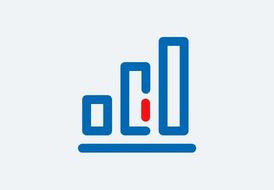Statement of compliance
I.
The Supervisory Board and the Management Board of DB AG declare that since the last declaration was issued on March 24, 2021, the recommendations on the PCGK adopted by the Federal Government on September 16, 2020, have been complied with, with the following exceptions:
A sample clause about the application of the PCGK as amended was developed and scheduled for inclusion in the company documents. The adoption of amended articles of association and partnership agreements is still in the implementation phase. It may be that by the time the statement of compliance is issued, resolutions of the corporate bodies or notarial deeds have not yet been finalized in the individual companies, with the result that this recommendation of the PCGK may not yet have been fully complied with at that time.
For some of the limited liability companies (GmbHs) within DB Group, shareholder’s meetings did not take place in person once a year as recommended by the PCGK; instead, they were held by way of a written resolution in accordance with section 48 of the German Limited Liability Company Act (Gesetz betreffend die Gesellschaften mit beschränkter Haftung; GmbHG).
These companies are directly or indirectly wholly owned by DB AG and are integrated into DB Group via a domination and profit and loss transfer agreement. As part of DB Group in companies mentioned above, meetings held in person to discuss the financial statements with only one person present as shareholder representative would have no added value in terms of content, but would result in a significantly disproportionate administrative burden and additional expenses, due to the presence of the auditor, for example.
A sample clause for anchoring approval conditions was developed and scheduled for inclusion in the company documents. The adoption of amended articles of association and partnership agreements is still in the implementation phase. It may be that by the time the statement of compliance is issued, resolutions of the corporate bodies or notarial deeds have not yet been finalized in the individual companies, with the result that this recommendation of the PCGK may not yet have been fully complied with at that time.
Continuous quarterly reporting recommended by the PCGK for the companies it covers in accordance with section 90 of the German Stock Corporation Act (Aktiengesetz; AktG) is not implemented for 13 GmbHs.
In these companies, this is not considered to be expedient, as the extension to a quarterly cycle would not lead to any added value or meaningful reporting depth for the supervisory body in view of the nature and scope of the business operations. The proper, timely and comprehensive information of the supervisory body continues to be effectively ensured, even with the current reporting period of at least one meeting per calendar half-year.
A sample clause was developed to define the general management’s information and reporting obligations and was scheduled for inclusion in the company documents. The adoption of amended company documents is still in the implementation phase. It may be that by the time the statement of compliance is issued, resolutions of the corporate bodies or notarial deeds have not yet been finalized in the individual companies, with the result that this recommendation of the PCGK may not yet have been fully complied with at that time.
The respective rules of procedure for the companies covered by the scope of application of the PCGK generally stipulate that a 14-day period must be observed for convening the Supervisory Board, including communication of agenda items. Additions should be communicated no later than one week before the meeting (by means of additional communication). In justified exceptional cases, additions to the agenda or the submission of documents may be required at short notice so that the Supervisory Board can also be informed in urgent cases or can also make corresponding decisions. During the reporting period, some companies covered by the PCGK submitted documents within less than 14 days’ notice in isolated cases.The companies shall continue to endeavor to comply with the specified notice periods as fully as possible.
In its D&O insurance policy, DB Group does not comply with the deductible recommended by the PCGK for executives of GmbH companies. DBAG has taken out a Group-wide D&O insurance policy for all its Board members in fully consolidated companies. A deductible for executives of GmbH companies is not prescribed by law and is not customary in the industry. Unlike executives of stock corporations, for whom the deductible is prescribed by law, there are hardly any corresponding insurance offers on the market to cover such a deductible for the executives of GmbHs. As a result, the respective executives would have to pay the economic risk of such a deductible directly from their own resources, without being able to adequately insure it, potentially leading to demands for higher remuneration. Furthermore, establishing a corresponding deductible for the executives of GmbHs would place DB Group at a significant competitive disadvantage in terms of recruiting qualified executives.
In D&O insurance, there is no deductible for members of supervisory bodies.
DB AG has taken out a Group-wide D&O insurance policy for all its Board members in fully consolidated companies, which also covers the members of the supervisory bodies.
In principle, a deductible is not a suitable way of improving the quality of the Supervisory Board’s activities. Instead, it reduces the attractiveness of the Supervisory Board mandate and therefore makes it more difficult to attract appropriately qualified candidates, especially as the compensation paid is already relatively low.
A significant portion of the compensation paid to representatives on DB Group Supervisory Boards who are delegated by/elected at the behest of the Federal Government is transferred to the Federal Treasury, unless they waive their compensation altogether. Members of the Supervisory Board representing employees also transfer a significant amount of their compensation to the Hans Böckler Foundation (HansBöckler-Stiftung). DB executives who take on Supervisory Board mandates within DB Group do not receive any separate compensation for DB Group-internal Supervisory Board mandates. This being the case, it does not seem appropriate to allow members of the supervisory bodies to share in the risks arising from Directors’ and Officers’ liability cases.
DB Group has largely complied with the PCGK’s recommendation that the entity responsible for compliance should report directly to the management, or implemented this in 2021 where it was not yet the case.
Some of the reorganization processes required for this in a few of the companies covered by the PCGK had yet to be fully completed at the time of the printing of this report, so this recommendation may not yet be fully complied with.
In the course of implementing the PCGK recommendations, a standard procedure/model document for a transparent selection procedure was developed in the reporting period and will be used in the future. These were not yet fully applied in 2021.
In one case, a managing director of a DB Group company covered by the PCGK was appointed for five years upon their initial appointment. Exceeding the recommended initial appointment period of three years was necessary to ensure the success of an exposed project of the Company.
During the reporting period, in two cases at different DB Group companies, reappointments were made before one year had elapsed and before the end of the appointment term. In one case, this was necessary to ensure the success of an exposed project of the company. In the other case, this approach was necessary to ensure continuity and stability in the company’s management.
A sample clause for the establishment of an age limit for members of management in line with statutory provisions on old-age pensions has been developed and scheduled for inclusion in company documents. The adoption of amended rules of procedure is still in the implementation phase. It may be that by the time the statement of compliance is issued, resolutions of the corporate bodies have not yet been finalized in the individual companies, with the result that this recommendation of the PCGK may not yet have been fully complied with at that time.
The remuneration system in DB Group will be methodically overhauled from the 2022 financial year. The envisaged methodology meets the requirements of the PCGK. At the time of printing this report, some of the relevant resolutions had not yet been adopted by the bodies.
The recommendations under no. 5.3.2 (1) and (2) of the PCGK, in accordance with which executive remuneration should be decided by the responsible corporate body, are, for the most part, complied with. In certain cases, there are still ongoing Group employment contracts for historical reasons. In these cases, where the contractual partner is not the corporate body, but rather DBAG as management holding company, the recommendations of this section shall be deviated from during the term of these Group employment contracts. There are no plans to conclude new Group employment contracts in the future.
DB AG intends to comply with the recommendation to establish malus and clawback clauses in the employment contracts of executives. This recommendation will be integrated into contractual regulations, predominantly in the context of new appointments and reappointments. Accordingly, it will take several years for the companies covered by the PCGK to fully comply with this recommendation.
The recommendations under nos. 5.3.3 and 5.3.4 of the PCGK with regard to the determination of variable compensation components by the responsible corporate body are, for the most part, complied with. In individual cases, there are still ongoing Group employment contracts for historical reasons. In these cases, where the contractual partner is not the corporate body, but rather DBAG as management holding company is, the recommendations of this section shall be deviated from during the term of these Group employment contracts, as the targets in these cases are agreed with Group management. There are no plans to conclude new Group employment contracts in the future.
The variable compensation/profit share in DB Group will be methodically overhauled from the 2022 financial year. The envisaged methodology meets the requirements of the PCGK. At the time of printing this report, some of the relevant resolutions had not yet been adopted by the bodies.
A corresponding sample clause has been developed and scheduled for inclusion in the company documents. The adoption of adapted company documents is currently still being implemented. It may be that by the time the statement of compliance is issued, resolutions of the corporate bodies or notarial deeds have not yet been finalized in the individual companies, with the result that this recommendation of the PCGK may not yet have been fully complied with at that time.
In the case of DB Projekt Stuttgart-Ulm GmbH, DB Group does not comply with the PCGK’s recommendation to anchor a supervisory body in the articles of association where this is not provided for by law. In 2013, the Management Board and Supervisory Board agreed to establish the project company DB Projekt Stuttgart— Ulm GmbH for the implementation of the major Stuttgart 21/Wendlingen — Ulm projects and to set up an Advisory Board of specialist experts to support the company. The Advisory Board of DB Projekt Stuttgart— Ulm GmbH does not have any tasks, rights or duties within the meaning of the German Stock Corporation Act (Aktienrecht). However, the Chairman of the Advisory Board regularly brings the committee’s positions into the deliberations of DBAG’s Supervisory Board on the Stuttgart 21 project. In addition, the auditors PricewaterhouseCoopers GmbH Wirtschaftsprüfungsgesellschaft (PwC) and the engineering firm Emch + Berger provide regular, independent support and quarterly reporting on the project status on DBAG’s Audit and Compliance Committee. There is, therefore, no intention to establish a separate Supervisory Board for DB Projekt Stuttgart— Ulm GmbH.
A sample document for the rules of procedure for the supervisory body has been developed and, where it does not yet exist, should be established promptly. The adoption of amended corporate documents is still in the implementation phase. It may be that by the time the statement of compliance is issued, resolutions of the corporate bodies have not yet been finalized in the individual companies, with the result that this recommendation of the PCGK may not yet have been fully complied with at that time.
Provision has been made for the deletion of the relevant delegation clauses from the company documents. The adoption of adapted company documents is currently still being implemented. It may be that, by the time the statement of compliance is issued, resolutions of the corporate bodies or notarial deeds have not yet been finalized in the individual companies, with the result that this recommendation of the PCGK may not yet have been fully complied with at that time.
A sample clause about checking the efficiency and quality of the supervisory body’s activities was developed and, where not yet available, scheduled for inclusion in the company documents. The adoption of adapted company documents is currently still being implemented. It may be that by the time the statement of compliance is issued, resolutions of the corporate bodies or notarial deeds have not yet been finalized in the individual companies, with the result that this recommendation of the PCGK may not yet have been fully complied with at that time.
A sample clause for setting an appropriate age limit for members of the supervisory body that complies with legal requirements was developed and scheduled for inclusion in the company documents. The adoption of amended company documents is still in the implementation phase. It may be that by the time the statement of compliance is issued, resolutions of the corporate bodies or notarial deeds have not yet been finalized in the individual companies, with the result that this recommendation of the PCGK may not yet have been fully complied with at that time.
DB Group does not comply with the recommendation that all companies covered by the PCGK hold one regular meeting of the supervisory body per calendar quarter. DBAG believes that holding meetings less frequently has proven to be effective, particularly in the case of smaller companies, and – given the size of the companies and the smaller variety of topics or reportable business transactions compared to large companies – it also constitutes proper monitoring of the management. From the point of view of the companies concerned, it would be disproportionate to increase the number of meetings and thus the administrative burden without there being significant added value.
To date, circular resolutions have been documented in a separate resolution. Additional consideration was arranged in the minutes of the subsequent meeting of the supervisory body in the reporting period and will be implemented gradually. This has not yet been done exhaustively for 2021.
DB AG does not follow the recommendation to disclose the compensation of the executive bodies of the subsidiaries covered by the PCGK on an individual basis in the Corporate Governance report.
Publishing the compensation awarded to the respective members of management, especially without their consent, would be questionable with regard to data protection. As yet, relevant consents have not been contractually agreed for the members of management, with the exception of the DB Group Management Board.
For one company, this recommendation was not complied with in the year under review.
II.
The Supervisory Board and the Management Board of DB AG further declare that the Group parent company and the companies under its uniform management that are required to apply the Code will, in principle, comply with the recommendations on PCGK 2020 adopted by the German Government on September 16, 2020, with the aforementioned exceptions.



